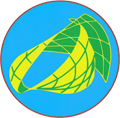Speaker
Description
The present-day standard model of cosmology, Lambda-CDM, gives us a representation of a cosmos whose dynamics is dominated by gravity (general relativity) with a finite lifetime, large scale homogeneity, expansion and a hot initial state, together with other dark elements necessary to avoid certain inconsistencies with observations. There are however some models with characteristics that are close to those of the standard model but differing in some minor aspects: different considerations on CP violation, inflation, number of neutrino species, quark-hadron phase transition, baryonic or non-baryonic dark-matter, dark energy, nucleosynthesis scenarios, large-scale structure formation scenarios; or major variations like an inhomogeneous universe, Cold Big Bang, varying physical constants or gravity law, different solutions of Friedmann-Lemaître-Robertson-Walker like zero-active mass (also called "R_h=ct") and Milne, and cyclical models, the more distant quasi-steady-state cosmology, plasma cosmology, or universe models as a hypersphere, to the most exotic cases including static models with non-cosmological redshifts of galaxies.
None of the alternative models has acquired the same level of development as Lambda-CDM in offering explanations of available cosmological observations. One should not, however, judge any theory in terms of the number of observations that it can successfully explain (ad hoc in many cases) given the much lower level of development of the alternative ones.

